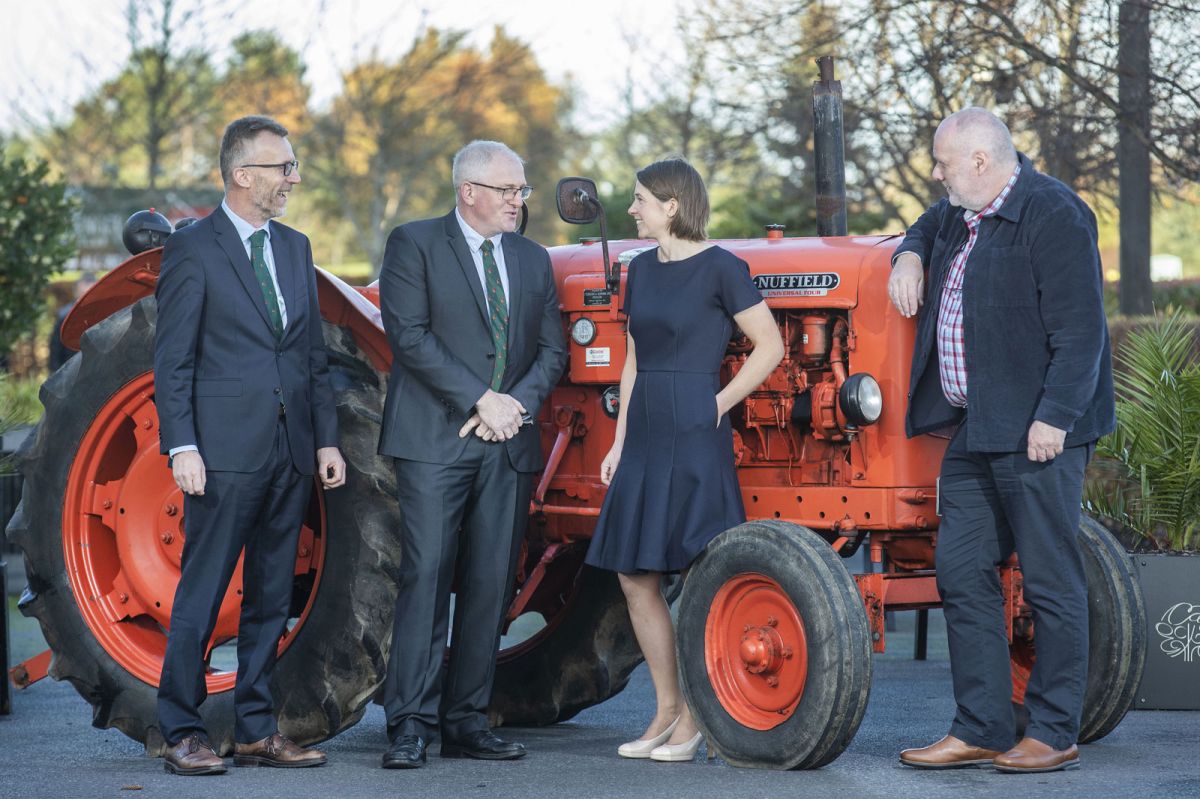Nuffield Conference highlights how soil health is at heart of climate efforts

Among the solutions and recommendations offered included a renewed focus on the role soil health can play on farms; scaling up existing measures that have yielded positive results and avoiding one-dimensional discussions.
The issue of soil health was raised by dairy farmer and veterinarian, Gillian O’Sullivan who said it is a huge area of focus on the dairy farm she runs with her husband and father. This was backed up by Helen Sheridan, Associate Professor in Agricultural Ecology, UCD School of Agriculture who said, “Everything begins with the soil. It is the fundamental basis on which we feed ourselves and if we carry out activities that are degrading that, then we are undermining that potential to feed ourselves into the future. This is a real resource that we have tended to forget about over the last 60 years, and it is up to us now to look at it again in a serious way.”
Following on Thomas Duffy, Dairy Farmer and VP CEJA said, “What is frustrating is that so much of what we need to be doing is known by the farming community but we cannot get environmentalists to listen; and in some ways so much of what we need to do from an environmental point of view, we can’t get farmers to listen, so we need to find a way of meeting in the middle.”
There was a unanimous agreement among all panelists that there was no benefit in continuing to operate in silos which resulted in a polarised debate.
Speaking about the panel discussion, Joe Leonard, Nuffield Ireland Chair said, “Our aim for today was to move the debate away from the toxic antagonism too often seen in public discourse and the media and instead to try to find a common ground in order to make real impacts. Today’s robust discussion identified some strong suggestions for how we can collaborate with all political, social and scientific groups and leave aside our personal ideologies to develop real and lasting solutions so that agriculture can make real and lasting impacts.”
The panel discussion, Chaired by Nuffield Scholar, Geoff Dooley outlined the stark reality of the challenge facing the industry in terms of the targets which need to be met. However, many initiatives such ASSAP (Agricultural Sustainability Support and Advisory Programme) which has already seen an impact in terms of improving water quality in Ireland; Carbery Groups initiative to create the first carbon-neutral dairy farm which will act as a living lab for farmers; and the global dairy industry ‘pathway to net zero’ initiative were also highlighted as examples of how the industry is moving in the right direction.
On the topic of greenwashing, farmer and environmentalist, Ciaran Duggan said he believes that like every other industry there is some level of greenwashing going on in agriculture and that there has been way too much talking and not enough action. He added, that while he believes incentives do work for farmers on one hand and should be considered, ‘‘I don’t think we should be waiting to be paid to do it, let’s do the right thing.’
Speaking from the US via zoom, Kevin Burkum, CCO Global Dairy Platform agreed on the need to see ‘progress not perfection’, a point which Helen Sheridan agreed on, saying that we could not wait for every sector to be in agreement and we needed to decide what areas we could move forward on.
Concluding the session, Gillian O’Sullivan said, “Environmental actions are not embedded within the farming culture here, production is, and when we can find a way of embedding environmental actions within the farming culture, that’s going to be a key thing in moving forward in the next five to ten years.”
Thomas Duffy added “It is important to note that there is no absolute sustainability. Everything is trade-offs and there are frustrations in the farming community that many of the solutions presented are disregarded because of the knock-on implications. However, I am very enthusiastic about the next generation of environmentalists, very often they are a massive challenge for the older environmentalists. If we as an agricultural community can do things well and go and talk to them and educate a new generation of young people about what we as a sector are going to do, we may be able to engage better and get better results.”
In addition to the panel discussion, attendees heard presentations from four returning Nuffield scholars who commenced their scholarships in 2021.
The Conference was supported by the following partners: MSD Animal Health, Ornua, Board Bia, National Dairy Council, IFAC, AIB, Origin Enterprises.





